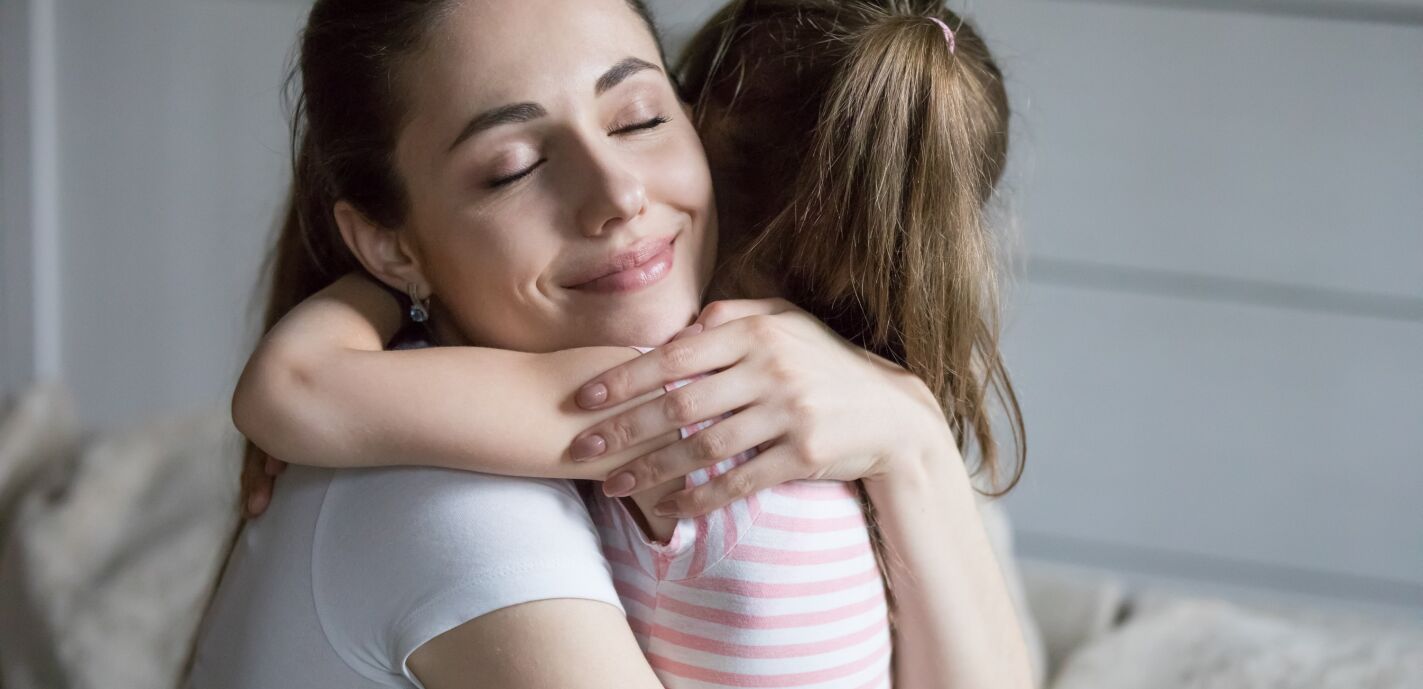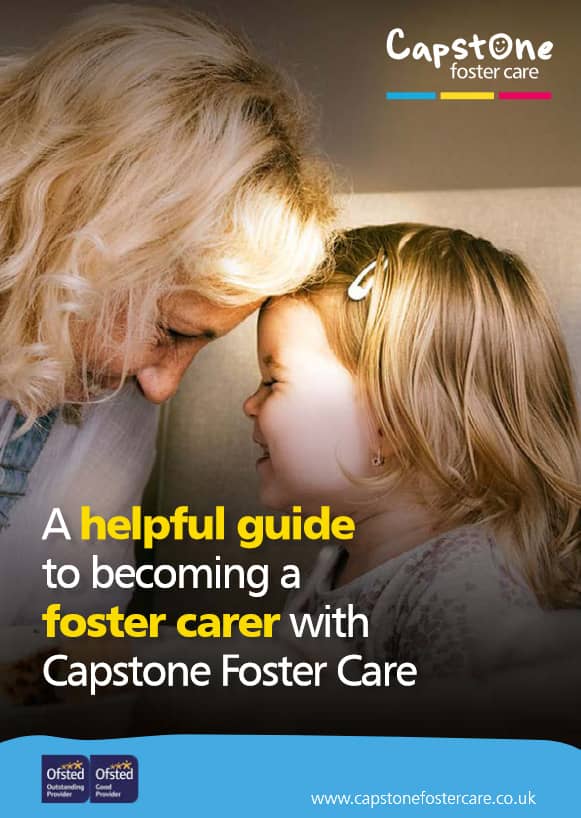


Fostering a disabled child
The role of an independent fostering agency
How to choose a foster care agency
Can I choose who I foster?
What are the benefits of fostering with an independent fostering agency?
What happens when a child is taken into care?
Fostering process: what happens on an initial home visit?
Fostering with local authority vs independent agency
A complete guide to becoming a foster carer
How Are Children in Foster Care Matched with Carers?
Foster Care Budgeting Tips
Becoming A Foster Carer
What is a Care Leaver?
What is a Foster Carer?
Fostering Regulations
How long does it take to become a Foster Carer?
What are the Foster Care requirements?
Changing IFA - Transferring to Capstone
8 reasons why a child may be taken into care
Fostering as a Career
Can you foster if you smoke or vape?
A guide to fostering assessments
LGBTQ+ Fostering
Equality, Inclusion & Anti-discriminatory Practice in Foster Care
What can disqualify you from foster care?
Can you foster if you’re on benefits?
Top transferable job skills to become a foster carer
Fostering as a same sex couple
Fostering while renting
Can you foster if you have mental health issues?
Is there an age limit for fostering in the UK?
Do foster carers get a pension?
How to foster a child: A step by step guide
How do DBS Checks Work?
Can I foster if...?
Mythbusting the top 10 Foster Care Myths
Can I foster if I am disabled?
LGBT Fostering Mythbusting
Can I foster if I have pets?
Can I Foster A Child?
Can I Foster and Work?
Can you Foster with a Criminal Record
Can Single People Foster?
LGBT Family and Foster Care
Fostering across Cultures
Muslim Fostering
Christian Foster Care
Sikh Fostering
Empty Nest Syndrome and Foster Care
Can I Foster?
What is the difference between residential care and foster care?
Fostering Babies and Young Children
What is Kinship Care?
Fostering Babies - Myths
Focusing on Parent & Child Fostering
Fostering Siblings
Fostering Teenagers
Fostering Teenagers - Breaking down the Myths
Fostering Unaccompanied and Asylum Seeking Children
Mother and Baby Foster Placements
Private Fostering
How does therapeutic fostering work?
Young Children Fostering Placements
Difference between short and long-term fostering
Types of self-harm
A Guide to the Foster Care Handbook
Reunification and Birth Parents: A Guide for Foster Carers
What is an EHC Plan? A Guide for Foster Carers
How to prepare a child for becoming a care leaver
Children who foster: impact of fostering on birth children
Fostering LGBTQ+ Youth
How to prepare your home for a foster child
How to help a lonely child: A Guide for Foster Carers
What are the National Minimum Standards for Fostering Services?
10 tips for foster children's education
How to prepare your foster child for secondary school
Tips for coping when foster placements end
Tips for foster parents during Coronavirus
What happens if foster parents get divorced?
5 ways to manage Mother's Day with foster children
Tips for managing foster children's bedtime routines
How to handle foster child bullying
Fostering allowances and the gender pay gap
What discounts can foster carers get?
How to adopt from Foster Care
5 ways to manage Father's Day for children in foster care
8 most common fostering challenges
FosterTalk Membership with Capstone Foster Care
Supporting foster children's contact with birth families
A guide to independent fostering
Keeping Children Safe Online: A Guide For Foster Carers
Movies About Foster Care
Play-based learning strategies for foster carers
A Guide to the Staying Put Program
Why Foster Parent Wellbeing Matters
How to deal with empty nest syndrome
How to recognise signs of depression in foster children
Can you take a foster child on holiday?
Tips and advice on fostering with a disability
10 tips on connecting with your Foster Child
Fostering vs Adoption - What's the difference?
How Fostering can change a future
How to adopt from Foster Care
How to encourage children to read in Foster Care
How to prepare a Foster Child's bedroom
Reading and Storytelling with Babies and Young Children
Supporting Children's Learning
The 20 most recommended books Foster Carers and young people should read
Things you can do when your children leave home
The impact of early childhood traumas on adolescence and adulthood
Anxious Disorders in Foster Children
What is sexual abuse and sexual violence
Foster Child behaviour management strategies
Foster Parent Advice: What to expect in your first year of fostering
Capstone's twelve tips at Christmas
10 celebrities who grew up in Foster Care
Could Millenials be the solution to the Foster Care crisis?
Do you work in Emergency Services?
Form F Assessor and Assessment Training
Foster Care Fortnight
Improving Children's Welfare - Celebrating Universal Children's Day
New Year - New Career - Become a Foster Carer
Young People Charities
Note: In this guide, we will refer to behaviours caused by developmental trauma as ‘anxious attachments’ to avoid negative connotations associated with the term ‘attachment disorders’.
As a foster parent, taking care of a child with an anxious attachment pattern is fairly common, as a result of the trauma they have experienced as a child. It can be complex and challenging to deal with if you’re new to fostering. However, it’s important to remember you’re not alone, as well as the wealth of support and guidance available to you at Capstone Foster Care, we’ll also provide help, support and advice for foster carers who are taking care of young children exhibiting signs, or who are already diagnosed with developmental trauma.
Anxious attachment patterns deriving from developmental trauma can develop in young children, toddlers or teenagers who struggle to trust others and develop emotional attachments. Many children with anxious attachment patterns have had severe problems in their early relationships and have likely experienced abuse, neglect or abandonment.
There are many reasons why children develop anxious attachment patterns including the failure of adults to provide sufficient caregiving. Resulting in a negative impact on their ability to trust that adults can be providers of safety and love. The effect of these attachment issues on child development, if not treated can affect future perspectives of relationships, and their social and emotional development well into adulthood and sometimes be lifelong
As a foster parent, you may be taking care of a child who, due to not having had the best start in life, sometimes exhibits anxious attachment patterns and rejects your efforts to care for them.
Complex developmental trauma can lead to children having anxious attachment patterns. However, the symptoms aren’t always easy to identify or diagnose – and each child may exhibit a range of different complexities. However, the most common indicators of children with attachment difficulties can include:
It is important to note that there may be other indicators which suggest a child may have an anxious attachment style, and some of these symptoms can be indicators of other conditions or levels of developmental trauma. How your foster child behaves will also be unique to their own personality traits and the characteristics, or defence mechanisms they’ve developed through individual circumstances.
If you suspect your foster child has an anxious attachment pattern, it’s a good idea to take the following steps to address their needs and provide them with the support and care they need.
If you’re looking after a foster child with a pre-existing development trauma or anxious attachment, information and guidance will be given to you when you are matched with the child. This should provide you with information about the way the child individually reacts to situations, and how best to deal with this as their carer. Some of the ways to do this include:
And remember, it’s not always easy. Overcoming attachment difficulties related to developmental trauma in foster children is a challenge, and at times you may feel that your care is rejected and your efforts are not appreciated. But maintaining patience, empathy, understanding and consistency will allow you to manage children with anxious attachment patterns more effectively.
If you’re considering becoming a foster parent, or you’re already looking after a young child, there’s more information on how to understand and care for a child with attachment difficulties through the extensive foster care training and support we provide. However, if you’d like to know more, feel free to get in touch with a member of our expert foster care team here at Capstone Foster Care today.
If you’ve got any questions or would like to find out more about fostering with Capstone, fill out the form below.
An experienced fostering advisor from your local area will then be in touch.

Start the conversation today. Our team of friendly advisors are on hand to answer any foster care questions you may have. We can offer you honest and practical advice that can help you decide if becoming a foster carer is the right path for you.


